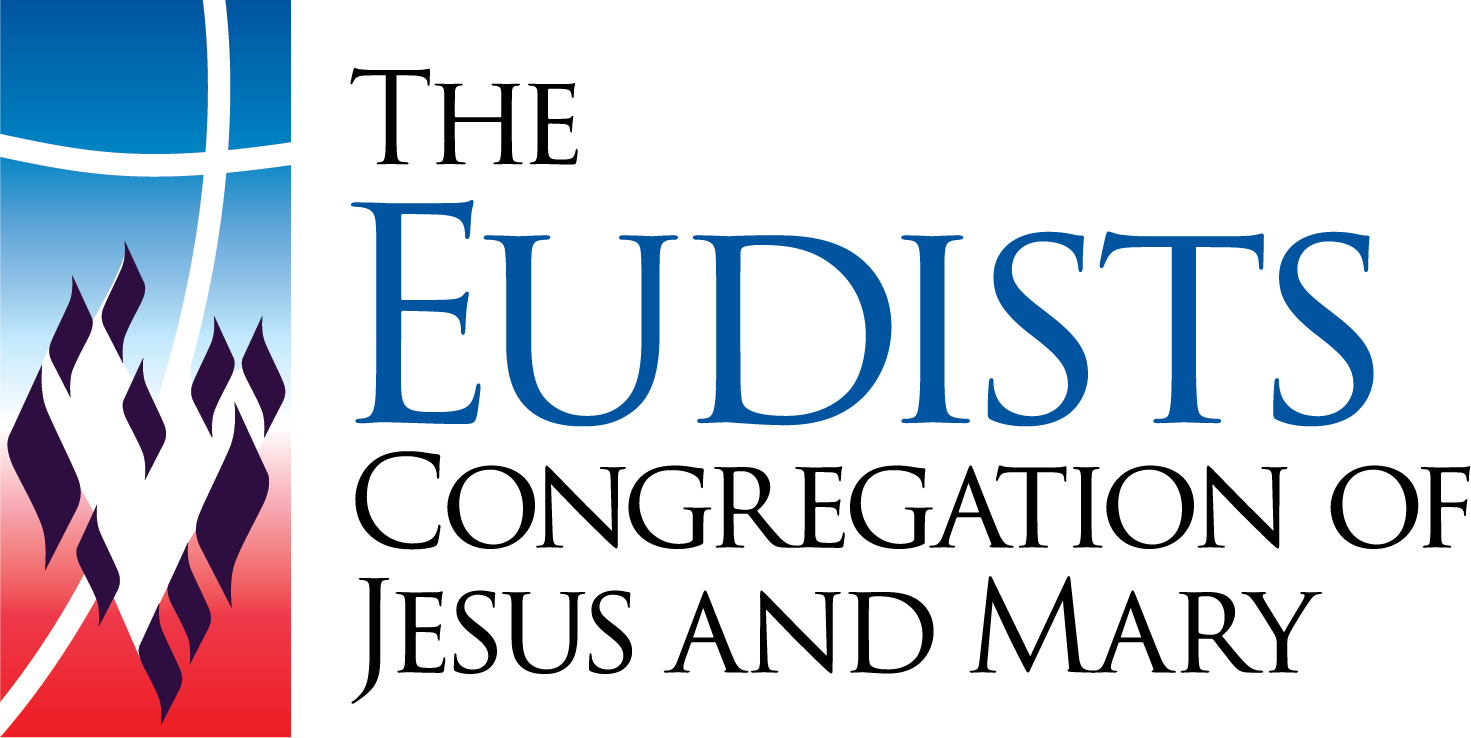It's a whodunnit.
St. John Eudes' bestselling classic, The Kingdom of Jesus, was published in English for the first time in 1947. The title page declares it as "Translated by a Trappist Father in the Abbey of Our Lady of Gethsemani." Two years later, The Seven Storey Mountain would be published from that same abbey selling 13,000 copies in its first month. Thomas Merton's runaway bestseller catapulted him from total obscurity to a path which would make him arguably one of the greatest Catholic thinkers of the 20th century.
So naturally, everyone wants a piece of him.
Some Eudists have been eager to claim this superstar as the anonymous "Trappist Father" translator of The Kingdom, while others are not so sure. Detractors would say that Fr. John Eudes Bamberger lived across the hall from Merton at Gethsemani for 18 years. Certainly if this man chose John Eudes as his religious name, wouldn't he be the more likely candidate?
Wonder no more.
Merton scholars probably have only a vestigial knowledge of who St. John Eudes is, but the 2002 Thomas Merton Encyclopedia claims it unquestioningly. Their chronology of Merton's work places The Kingdom's translation as an assignment he was given as a novice in 1946 (chronology on p. vi, with a full entry on p. 259-256):
"Only this volume (of St. John Eudes' works) was translated by Thomas Merton, who is simply identified as 'a Trappist Father' (even though he was still three years from ordination at the time)."
It was evidently one of two spiritual classics translated from French by Merton between his simple vows (1944) and solemn vows (1947), the other being Dom Chautard's Soul of the Apostolate. Merton's attribution for this latter work was again anonymous: "A Monk of Our Lady of Gethsemani," although he would claim it when a new edition was published in 1961 (Encyclopedia, p. 445-446).
A passage from The Seven Storey Mountain does obliquely describe a translation process during Lent of 1946 (p. 401 of the 1948 Harcourt edition), but fails to name the works in question:
"After the Conventual Mass, I would get out book and pencil and papers and go to work at one of the long tables in the novitiate scriptorium, filling the yellow sheets as fast as I could, while another novice took them and typed them as soon as they were finished."
The decisive testimony required to settle the question comes from the memoirs of the "other novice" referred to. Fr. Benjamin Clark published his recollections of "Thomas Merton's Gethsemani" in vols. 4-5 of "The Merton Annual." The translation for which Fr. Clark was the typist is described on pp. 249-250 of vol. 4:
"I remember one such assignment which Merton records (SSM, p. 401). Gethsemani had entered a contract to translate the work of St. John Eudes for the publication of a new edition. Several of the monks had been assigned volumes to translate, and Merton was given The Kingdom of Jesus in Christian Souls. The publishers had allowed only a short time for the work to be completed and so I was assigned to help Merton meet the deadline. I typed the finished copy in triplicate as Merton dashed off the original on sheets of yellow paper...
When the work was finished and delivered to the publisher, I told Father Robert [the novicemaster] that I thought Merton had done an excellent job of translating. Father Robert told me that the publisher agreed and said that it was the best translation of any of the works of St. John Eudes that he had seen. As the name Thomas Merton would have meant nothing at that time, the translation was published without mentioning the translator's name"
There we have it. A firsthand account from the typist.
So what?
Merton was obedient, but did he actually read the thing as he was "dashing off pages"? Patrick O'Connell gives a highly condensed answer. An answer which could be rather unsatisfying if one is looking for concrete connections:
"While the highly structured devotional emphasis of the work has little in common with Merton's own contemplative focus, Eudes does share with Merton a strongly Pauline emphasis on identifying with the person of Jesus Christ as the central spiritual dynamic not just for professed religious but for all Christians."
Being far from a Merton scholar myself, I can bring the question no further. I did, however, discover St. John Eudes sneaking into the Trappist's poetry. The 2000 Fall edition of the "Merton Seasonal" contains a group of early poemspreviously unpublished. Two are early drafts of a piece entitled "Sacred Heart 2 (A Fragment--)." St. John Eudes would fall out of the final cut when the poem was published posthumously in the 1971 collection Early Poems. However, his place in the early versions provide a lyrical note on which to end this article. The following are two versions of an early stanza in the unpublished drafts. The poem as a whole (well worth reading in extenso) seems to explore the tension between apophatic unknowing and kataphatic raptures:
(earlier [?] version)
"...when I try to build You in the Sisters' jigsaws
And make You come out even, with a face of flowers,
My heart is deader than the sheep in the design,
My mind is stuffy with their artificial wool -
For all these holy fervors,
Sung in the long light-operas of St John Eudes,
Build me a thousand barricades,
And there I die, abandoned, in a sing-sing of affections..."
(later [?] version)
"...Lock me and bind me and save me from the Sisters' jig-saws,
I cannot make You come out even, with that face of flowers:
My will is deader than the sheep in the design,
My faith is stifled by their artificial wool,
And all these courteous fervors,
The holy arias of St John Eudes,
Rack me and kill me in a Sing-sing of affections,
Break me and slay me in a pile of cushions..."


